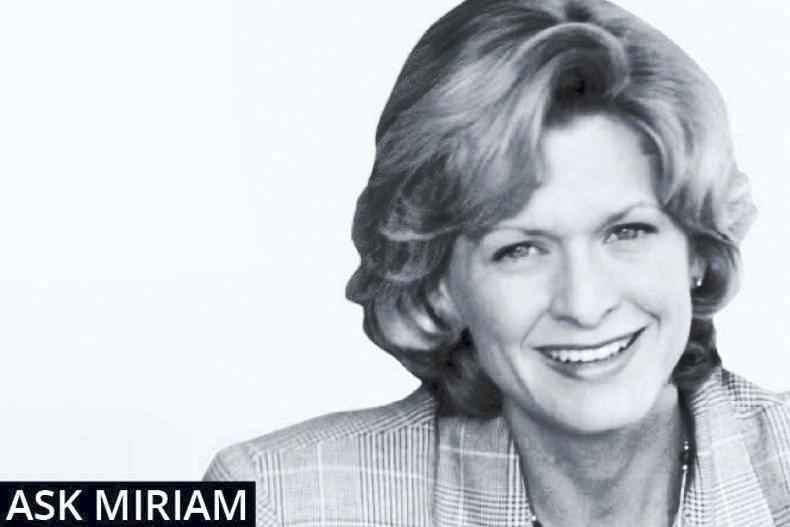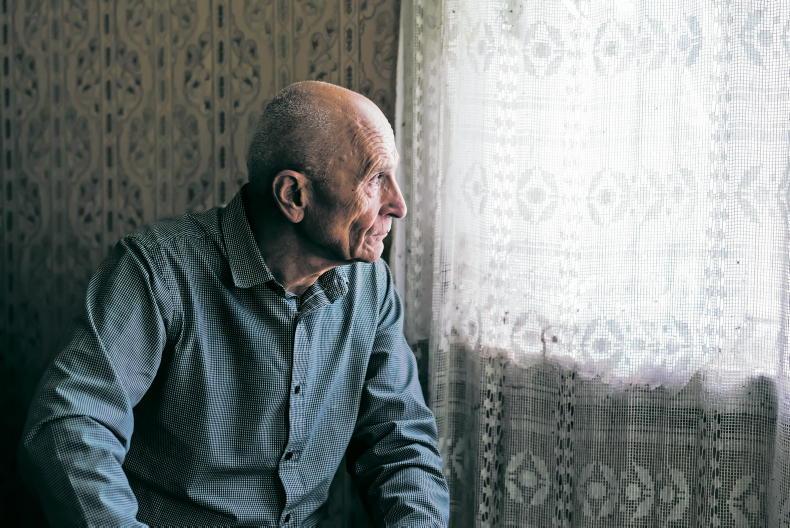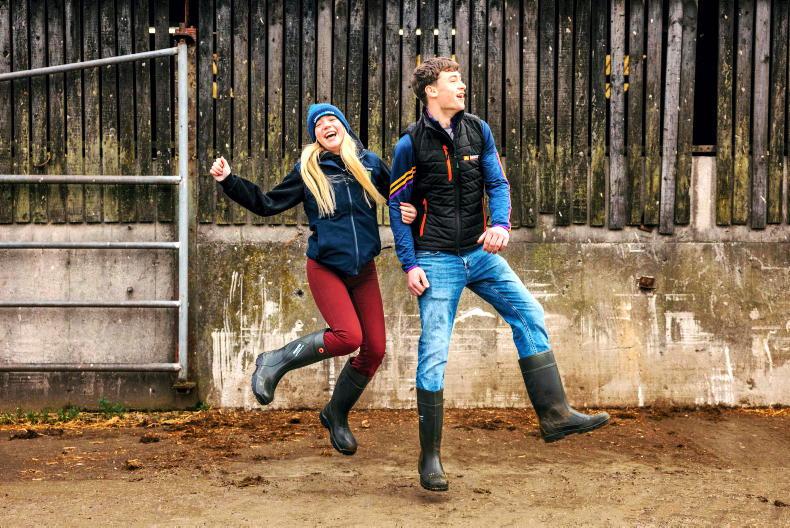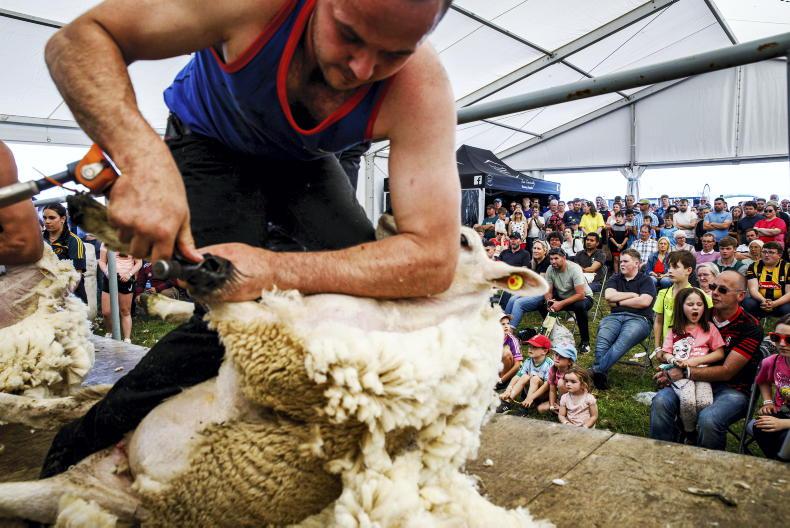When I was a small child, we moved back to Windgap to our family farm and butchers and to my grandfather, Mick. Grandad, as he was called by all of us, and in truth by all of my friends, was a giant of a man when I was a child and I adored him. He slaughtered cattle and sheep for most of the county and bagged it the way you wanted it. Two big chops and three little ones, that kind of thing. He was, as he always said, “forced into early retirement” at 76 by the ever-increasing burden of legislation and the associated pressures that small abattoirs came under in the early 2000s.
I am not suggesting that this legislation was not required, but it did stop him working and took away his main connection to the world beyond our farm gate. As his health deteriorated, a “grandad-flat” was built but he never moved into it, the stairs to his room being an emblem of his independence. I think I saw him visibly shrink, as he did less and less, and 10 years later he died.
There is some debate around what age one should retire with some research suggesting that the earlier you retire, the longer you will live. But I have often wondered if he could have kept working, which is what he wanted, would he have lived longer or at least would he have been more content in his later years doing what he loved?
It’s well known that we are living longer with the CSO putting women’s life expectancy at almost 83 and men’s at 78 and this is expected to increase further
I read last weekend that it is now Government policy to link the state pension retirement age to life expectancy as a way to reduce state pension expenditure. A Macra succession and land mobility survey showed that for 82% of farmers, the state pension would be a form of income for them post-retirement.
It’s well known that we are living longer with the CSO putting women’s life expectancy at almost 83 and men’s at 78 and this is expected to increase further. An increasing pension age will impact on many Irish farms that cannot economically support multiple generations and this can add further difficulty for succession as in the absence of other sources of income it can be very difficult to transfer farms until retirement age is reached and the farmer qualifies for the state pension.
According to Maria Feeney, a lecturer in the DCU Institute of Education, who spoke at last week’s Embrace Farm Conference, we are now living longer as we are more health literate. That is, we are more knowledgeable about our health and when we are not feeling good, we can actively seek help. Being able to access services to do this is vital.
Maria Feeney also spoke about the ageing demographics in rural Ireland and the supports required by groups at risk of isolation, poor health or mobility issues
This week, Mairead Lavery writes in our supplement about the Local Link bus services that are carrying two million passengers a year around rural Ireland. These bus routes are servicing a need for young and old but provide a particularly valuable service to the elderly whose mobility has been impacted.
Maria Feeney also spoke about the ageing demographics in rural Ireland and the supports required by groups at risk of isolation, poor health or mobility issues. She said that health inequality is emerging as social factors can impact on people’s wellbeing including for example that if you are unemployed you are more likely to report that your life satisfaction is not as high as an employed person. And this brought me back to thinking about Grandad. Supports are necessary in rural Ireland and would help farmers ease into retirement.
Read more
Farmers have to look after each other - Embrace Farm
No amount of money can bring back a life lost
When I was a small child, we moved back to Windgap to our family farm and butchers and to my grandfather, Mick. Grandad, as he was called by all of us, and in truth by all of my friends, was a giant of a man when I was a child and I adored him. He slaughtered cattle and sheep for most of the county and bagged it the way you wanted it. Two big chops and three little ones, that kind of thing. He was, as he always said, “forced into early retirement” at 76 by the ever-increasing burden of legislation and the associated pressures that small abattoirs came under in the early 2000s.
I am not suggesting that this legislation was not required, but it did stop him working and took away his main connection to the world beyond our farm gate. As his health deteriorated, a “grandad-flat” was built but he never moved into it, the stairs to his room being an emblem of his independence. I think I saw him visibly shrink, as he did less and less, and 10 years later he died.
There is some debate around what age one should retire with some research suggesting that the earlier you retire, the longer you will live. But I have often wondered if he could have kept working, which is what he wanted, would he have lived longer or at least would he have been more content in his later years doing what he loved?
It’s well known that we are living longer with the CSO putting women’s life expectancy at almost 83 and men’s at 78 and this is expected to increase further
I read last weekend that it is now Government policy to link the state pension retirement age to life expectancy as a way to reduce state pension expenditure. A Macra succession and land mobility survey showed that for 82% of farmers, the state pension would be a form of income for them post-retirement.
It’s well known that we are living longer with the CSO putting women’s life expectancy at almost 83 and men’s at 78 and this is expected to increase further. An increasing pension age will impact on many Irish farms that cannot economically support multiple generations and this can add further difficulty for succession as in the absence of other sources of income it can be very difficult to transfer farms until retirement age is reached and the farmer qualifies for the state pension.
According to Maria Feeney, a lecturer in the DCU Institute of Education, who spoke at last week’s Embrace Farm Conference, we are now living longer as we are more health literate. That is, we are more knowledgeable about our health and when we are not feeling good, we can actively seek help. Being able to access services to do this is vital.
Maria Feeney also spoke about the ageing demographics in rural Ireland and the supports required by groups at risk of isolation, poor health or mobility issues
This week, Mairead Lavery writes in our supplement about the Local Link bus services that are carrying two million passengers a year around rural Ireland. These bus routes are servicing a need for young and old but provide a particularly valuable service to the elderly whose mobility has been impacted.
Maria Feeney also spoke about the ageing demographics in rural Ireland and the supports required by groups at risk of isolation, poor health or mobility issues. She said that health inequality is emerging as social factors can impact on people’s wellbeing including for example that if you are unemployed you are more likely to report that your life satisfaction is not as high as an employed person. And this brought me back to thinking about Grandad. Supports are necessary in rural Ireland and would help farmers ease into retirement.
Read more
Farmers have to look after each other - Embrace Farm
No amount of money can bring back a life lost








SHARING OPTIONS